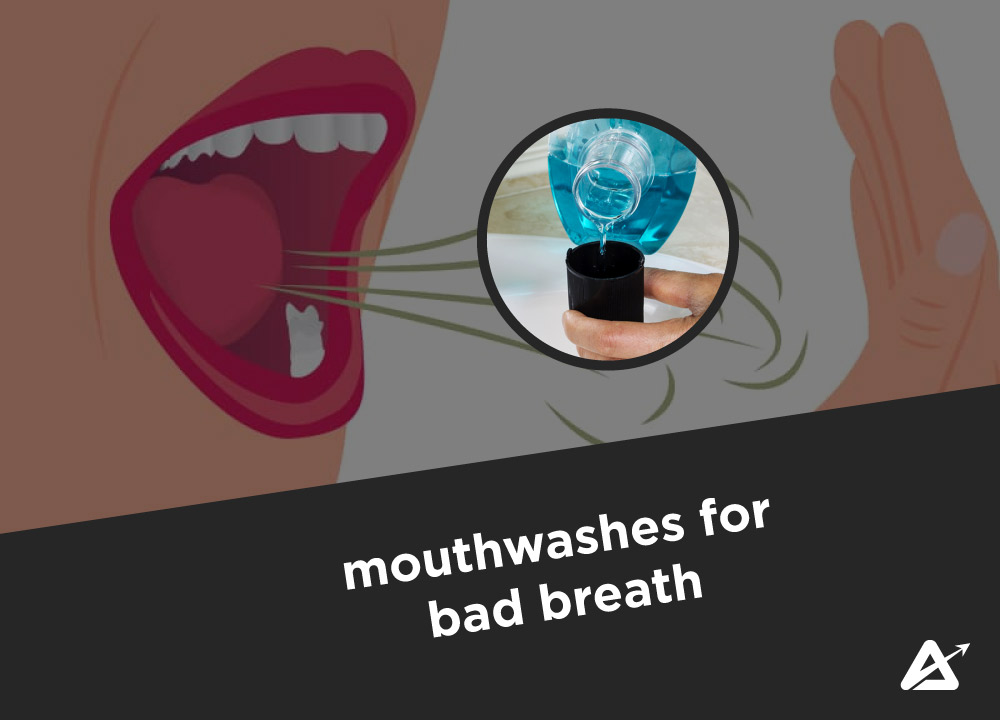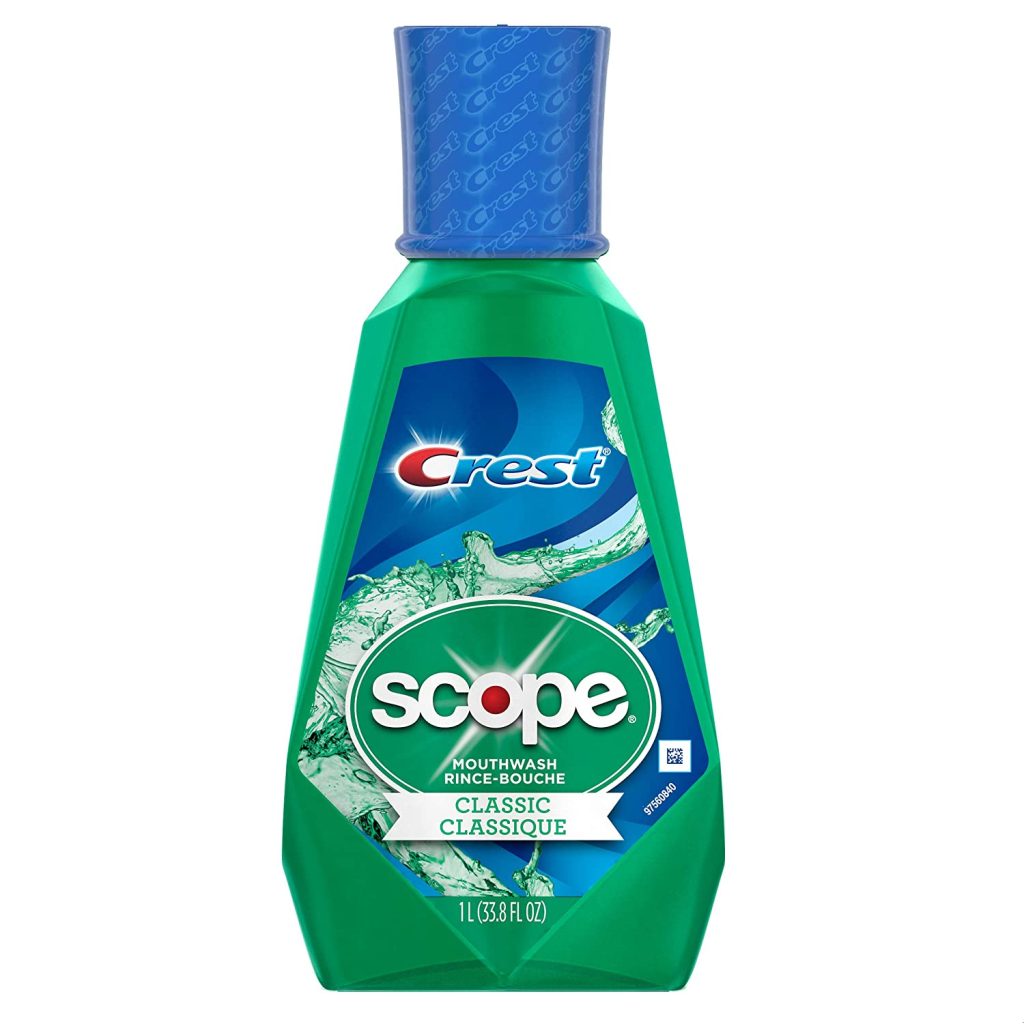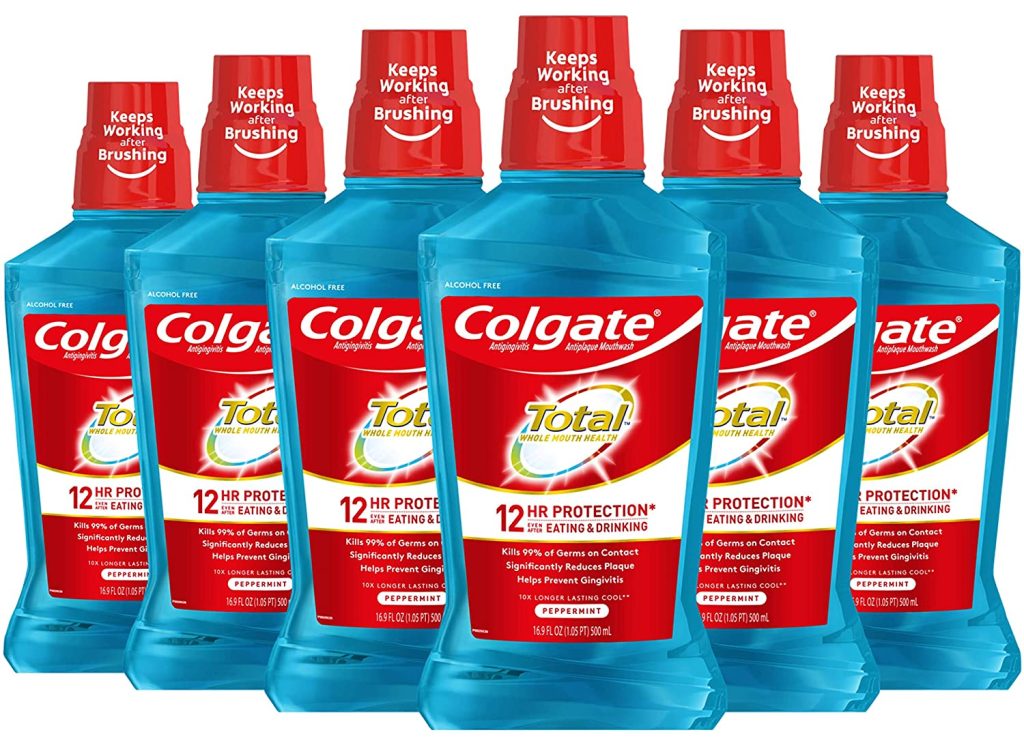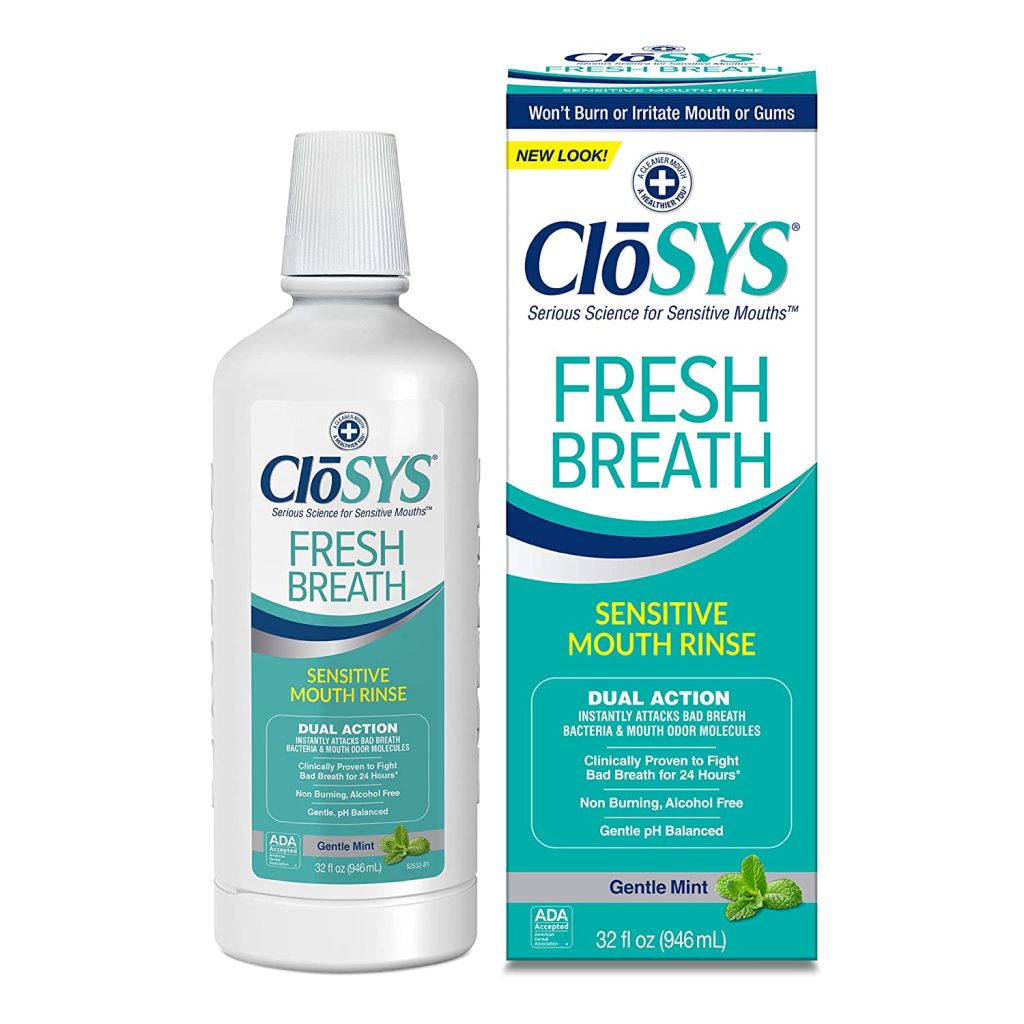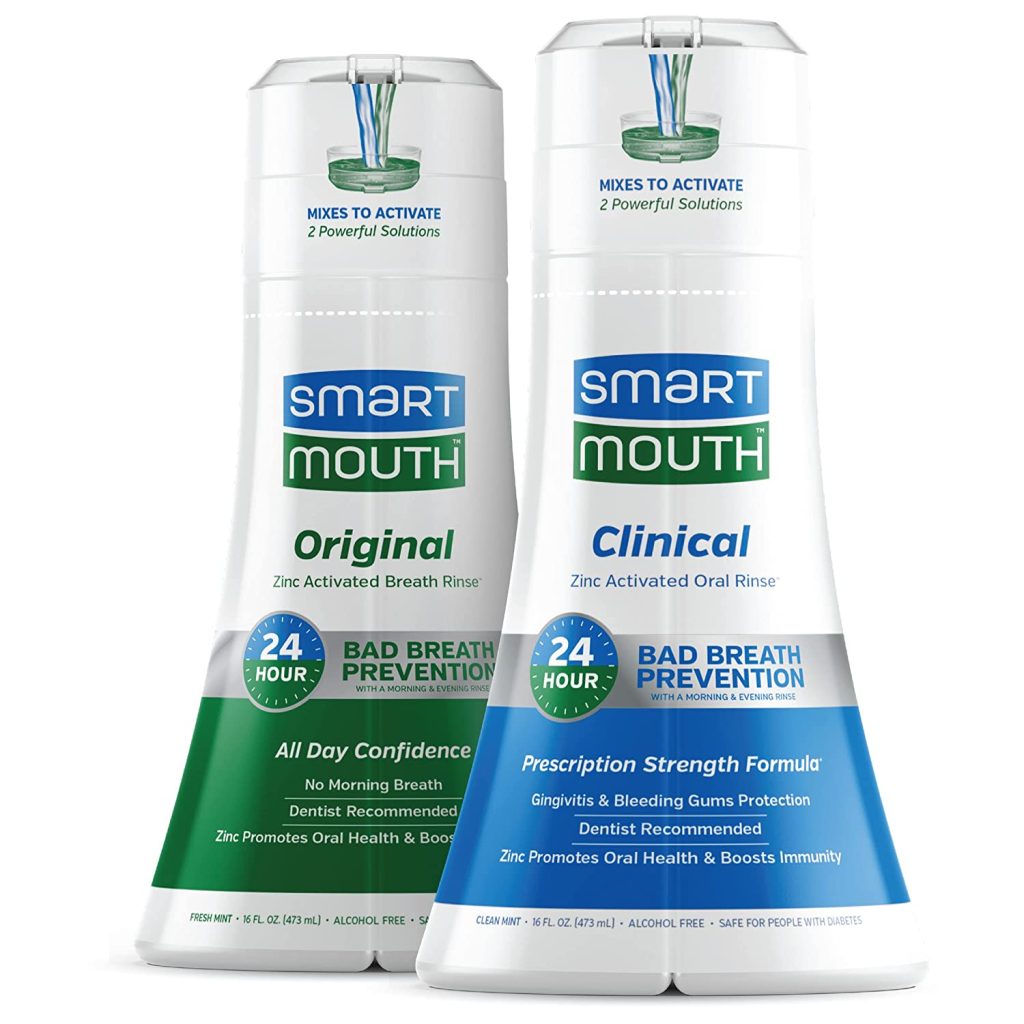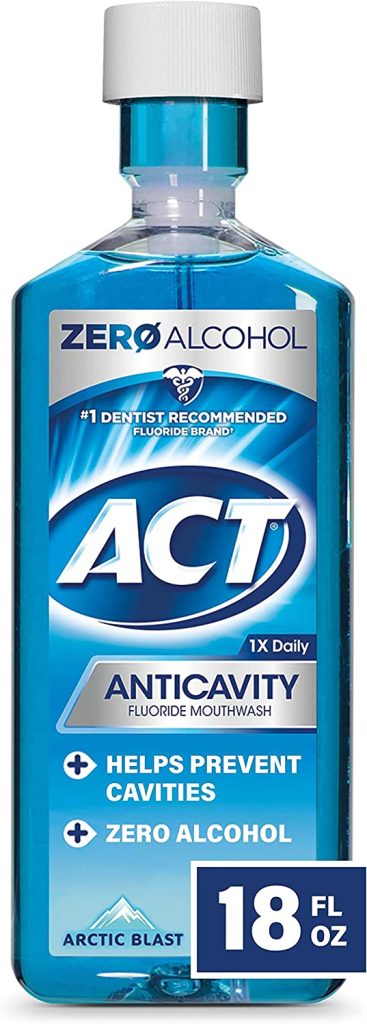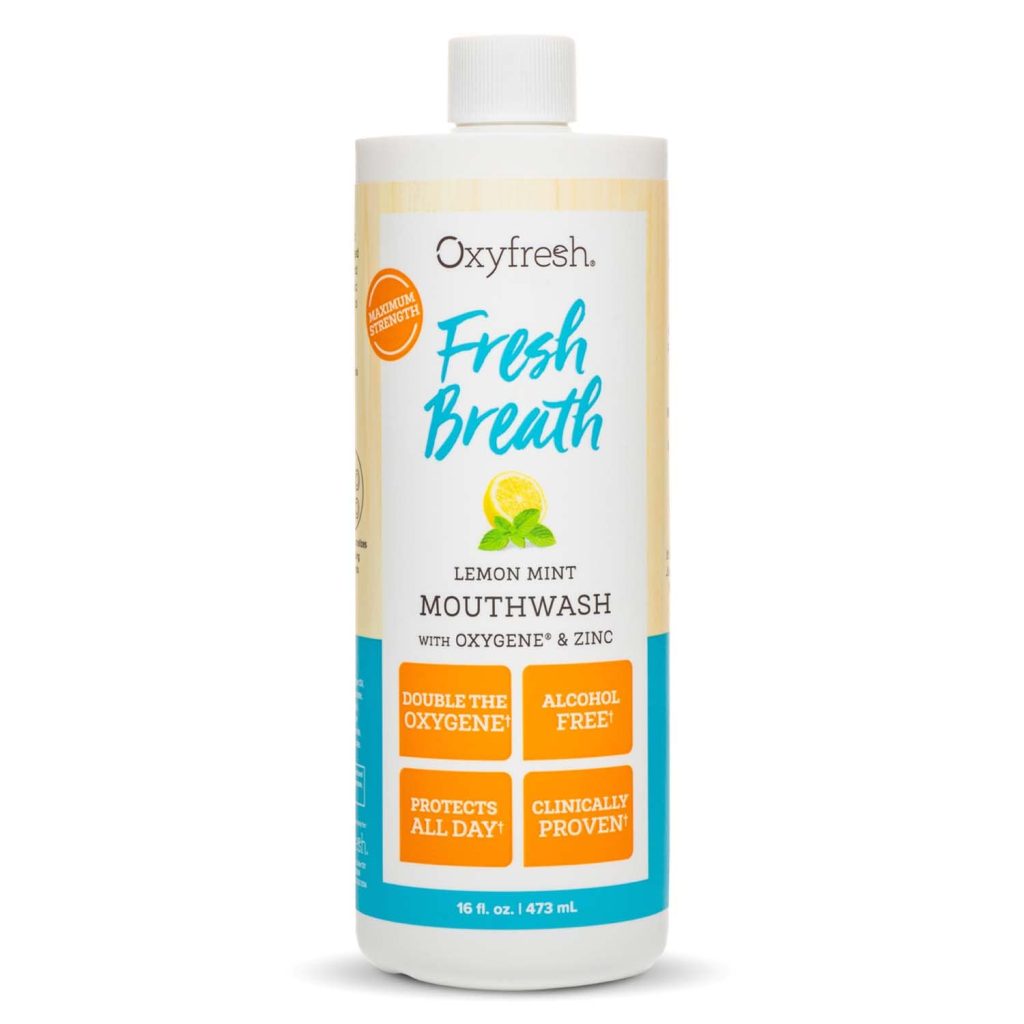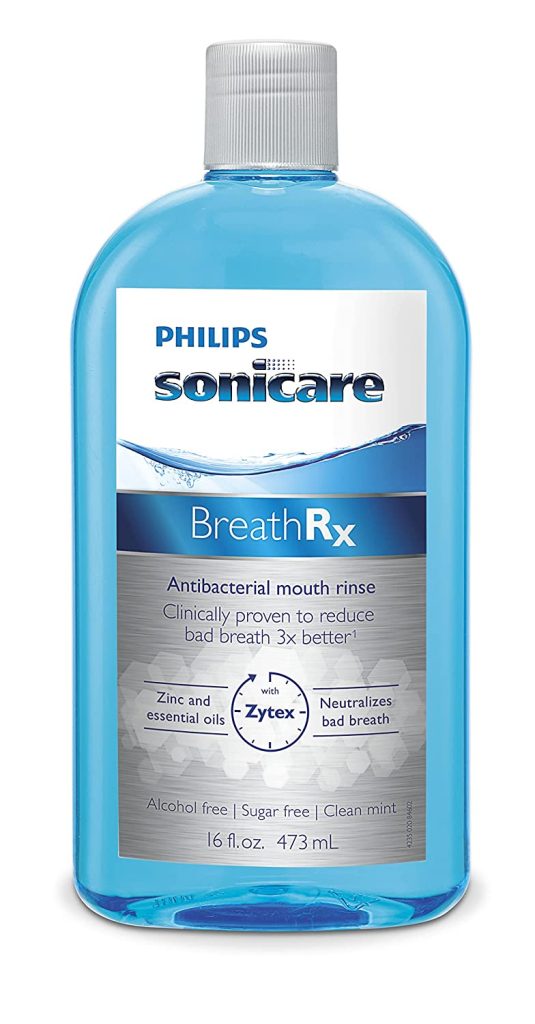Are you find the best mouthwashes for bad breath? Don’t worry, you’re not alone. Bad breath, also known as halitosis, can be embarrassing and impact your self-confidence. While maintaining the best mouthwash for bad breath oral hygiene routine is crucial. Sometimes brushing and flossing alone may not be enough.
In this blog, we’ll explore the best mouthwashes available on the market. That can help combat bad breath. Leaving you with fresh and clean breath that you can confidently flaunt.
What is mouth-bad breath and Why does cause it?
Bad breath, also known as halitosis, is a common oral condition characterized by an unpleasant odor originating from the mouth. It can be caused by a variety of factors, including poor oral hygiene, bacterial growth in the mouth, dry mouth, certain foods and drinks, smoking, and underlying medical conditions such as gum disease or sinus infections. The foul smell arises when bacteria break down food particles and release sulfur compounds, which can linger in the mouth and lead to an offensive odor. Maintaining good oral hygiene, such as regular brushing and flossing, along with regular dental check-ups, can help prevent and manage bad breath.
What to do for mouth bad breath?
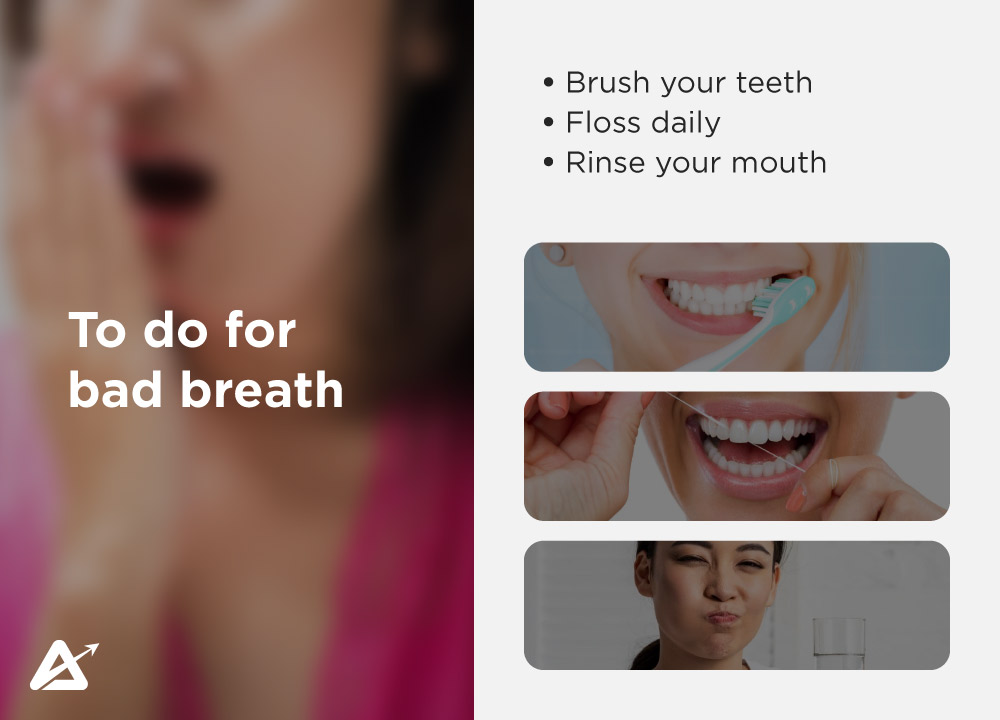
- Brush your teeth: Brush your teeth at least twice a day, preferably after meals, using fluoride toothpaste. Pay attention to your tongue as well, as bacteria can accumulate there.
- Floss daily: Use dental floss or interdental brushes to remove food particles and plaque from between your teeth. This helps prevent the buildup of odor-causing bacteria.
- Rinse your mouth: Use an antiseptic mouthwash or rinse with water after brushing to further eliminate bacteria and freshen your breath.
- Stay hydrated: Drink plenty of water throughout the day to prevent dry mouth, which can contribute to bad breath. Chewing sugar-free gum can also stimulate saliva production.
- Watch your diet: Avoid strong-smelling foods like garlic and onions, which can leave lingering odors. Opt for a balanced diet with plenty of fruits and vegetables.
- Avoid tobacco and alcohol: Both tobacco and alcohol can contribute to bad breath. Quitting smoking and reducing alcohol consumption can greatly improve oral odor.
- Visit your dentist regularly: Regular dental check-ups and professional cleanings are important to maintain good oral hygiene and address any underlying dental issues.
- Maintain good oral hygiene habits: In addition to brushing and flossing, consider using a tongue scraper to remove bacteria from your tongue’s surface.
Here are some of the best mouthwashes for bad breath on the market –
Also, mouthwash plays an important role in removing bad breath –
Mouthwash plays a significant role in removing bad breath and maintaining oral hygiene. Here are some key points highlighting its importance:
Eliminating Odor-Causing Bacteria
Bad breath, or halitosis, is often caused by the presence of bacteria in the mouth. Mouthwash contains antimicrobial ingredients, such as cetylpyridinium chloride (CPC), chlorhexidine, or essential oils, which effectively kill bacteria and neutralize the odor they produce. By rinsing with mouthwash, you can reduce the number of bacteria in your mouth, leading to fresher breath.
Reaching Difficult Areas
Toothbrushes and floss can clean the visible surfaces of the teeth and the areas between them, but they may struggle to access certain nooks and crannies in the mouth. Mouthwash can reach these difficult-to-clean areas, such as the back of the tongue or the tonsils, and help remove bacteria and food particles that contribute to bad breath.
Freshening Breath Instantly
Unlike other oral hygiene practices that may require time and effort, mouthwash provides an immediate solution for freshening breath. Swishing mouthwash for about 30 seconds to a minute can instantly mask unpleasant odors and leave you with a minty-fresh feeling.
Supplementing Brushing and Flossing
While brushing your teeth twice a day and flossing daily is crucial for oral health, mouthwash serves as a valuable addition to your routine. It acts as a supplementary tool to reduce plaque buildup, prevent gingivitis, and improve overall oral hygiene. By incorporating mouthwash into your daily regimen, you can enhance the effectiveness of your oral care routine.
Promoting Gum Health
Certain types of mouthwash contain ingredients that help combat gum disease and promote gum health. For example, chlorhexidine mouthwashes have been found to reduce gingivitis and plaque formation. By maintaining healthier gums, you can minimize the chances of developing bad breath caused by gum infections or inflammation.
Providing a Convenient Travel Option:
Mouthwash is portable and convenient to use, making it an ideal choice for maintaining fresh breath on the go. Whether you’re traveling, at work, or away from home, carrying a travel-sized bottle of mouthwash allows you to quickly freshen your breath and maintain oral hygiene throughout the day.
Remember, while mouthwash is a valuable tool in combating bad breath, it should not replace proper oral care practices such as regular brushing, flossing, and dental check-ups. Using mouthwash in conjunction with a comprehensive oral hygiene routine can help ensure fresh breath and a healthy mouth.
What mouthwash is the best for bad breath and why?
There are several types of mouthwash available on the market that can help address bad breath. However, it’s important to note that the effectiveness of mouthwash can vary depending on the underlying cause of bad breath. That being said, here are a few popular types of mouthwash known for their efficacy in combating bad breath:
Listerine: Listerine is a well-known brand that offers a range of mouthwashes. It contains essential oils like menthol, thymol, and eucalyptol, which have antimicrobial properties. These ingredients help kill bacteria that can cause bad breath.
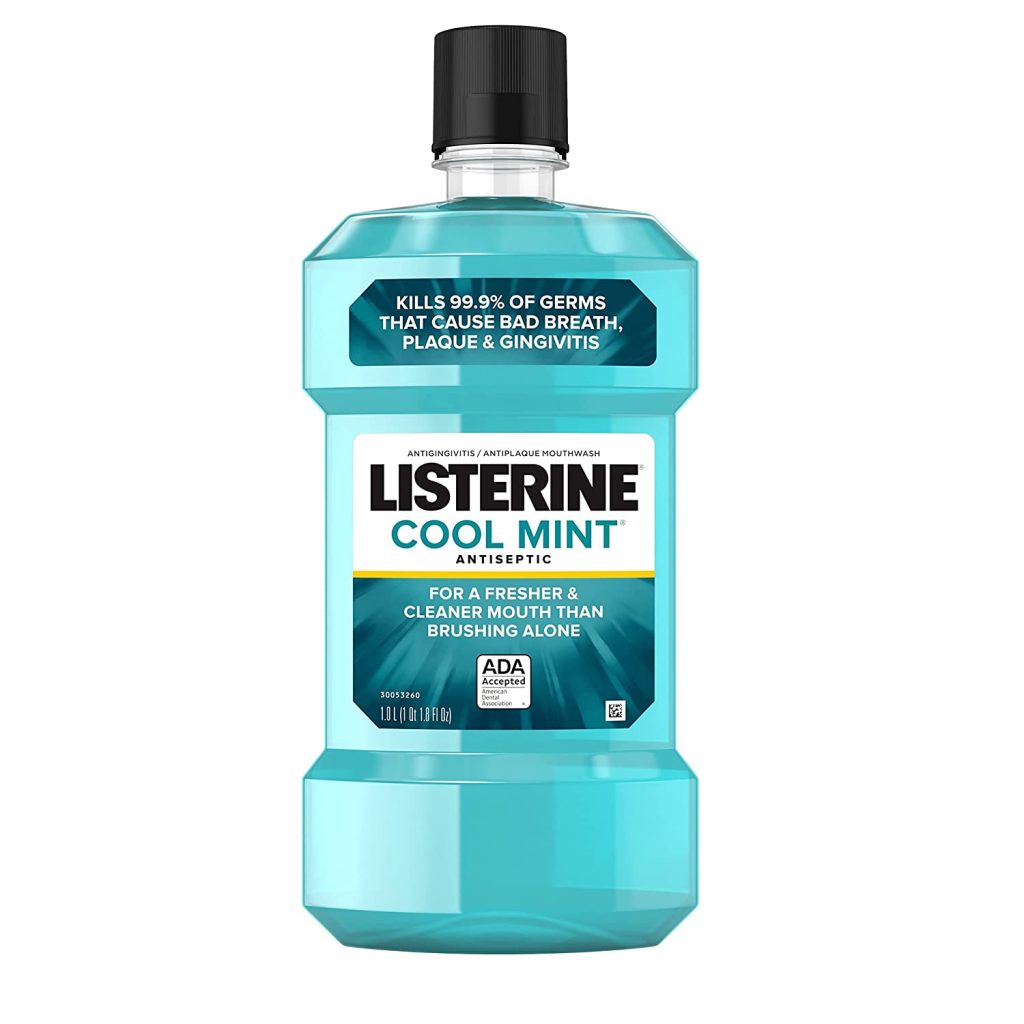
TheraBreath: TheraBreath mouthwashes are specifically formulated to target bad breath. They contain active ingredients like cetylpyridinium chloride (CPC) and chlorine dioxide, which help neutralize volatile sulfur compounds (VSCs) responsible for unpleasant odors.
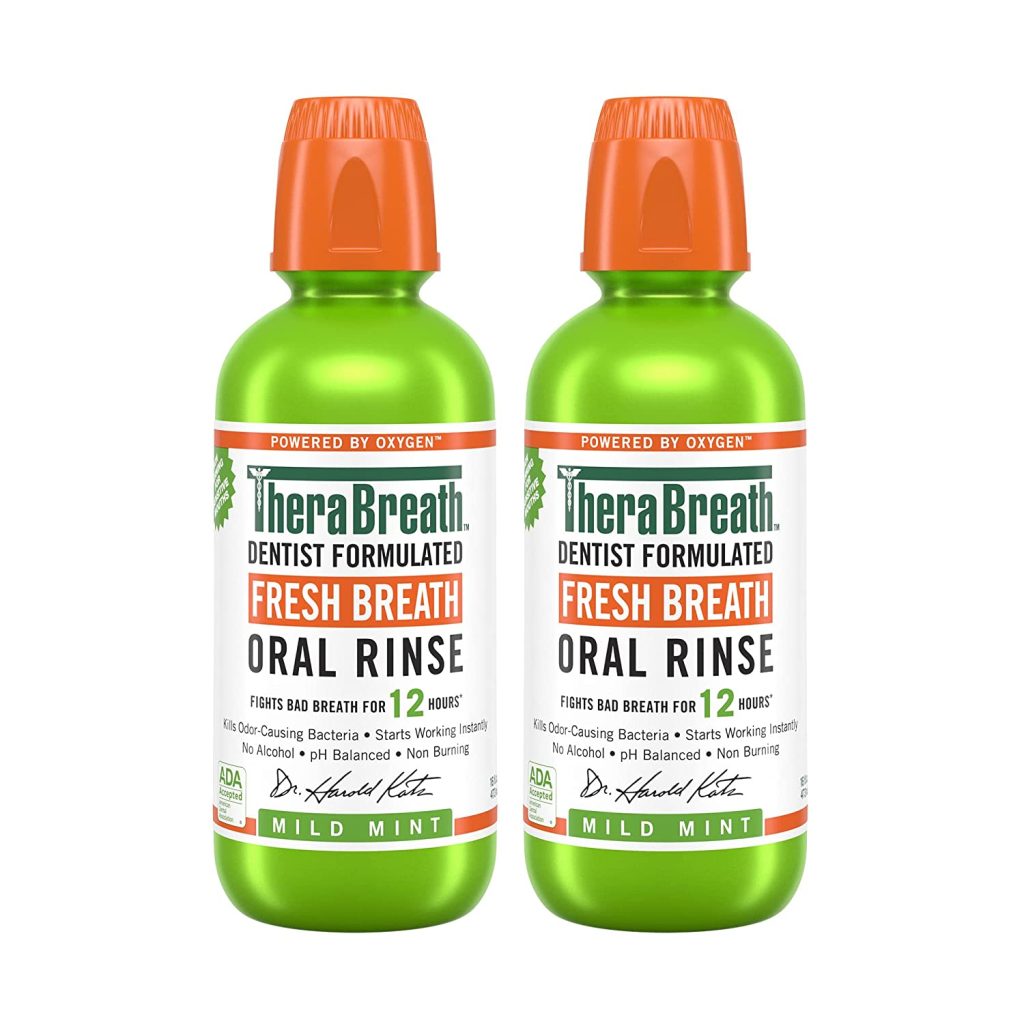
Crest Pro-Health: Crest Pro-Health mouthwashes contain fluoride and antimicrobial agents that can help reduce plaque and gingivitis, two common causes of bad breath.
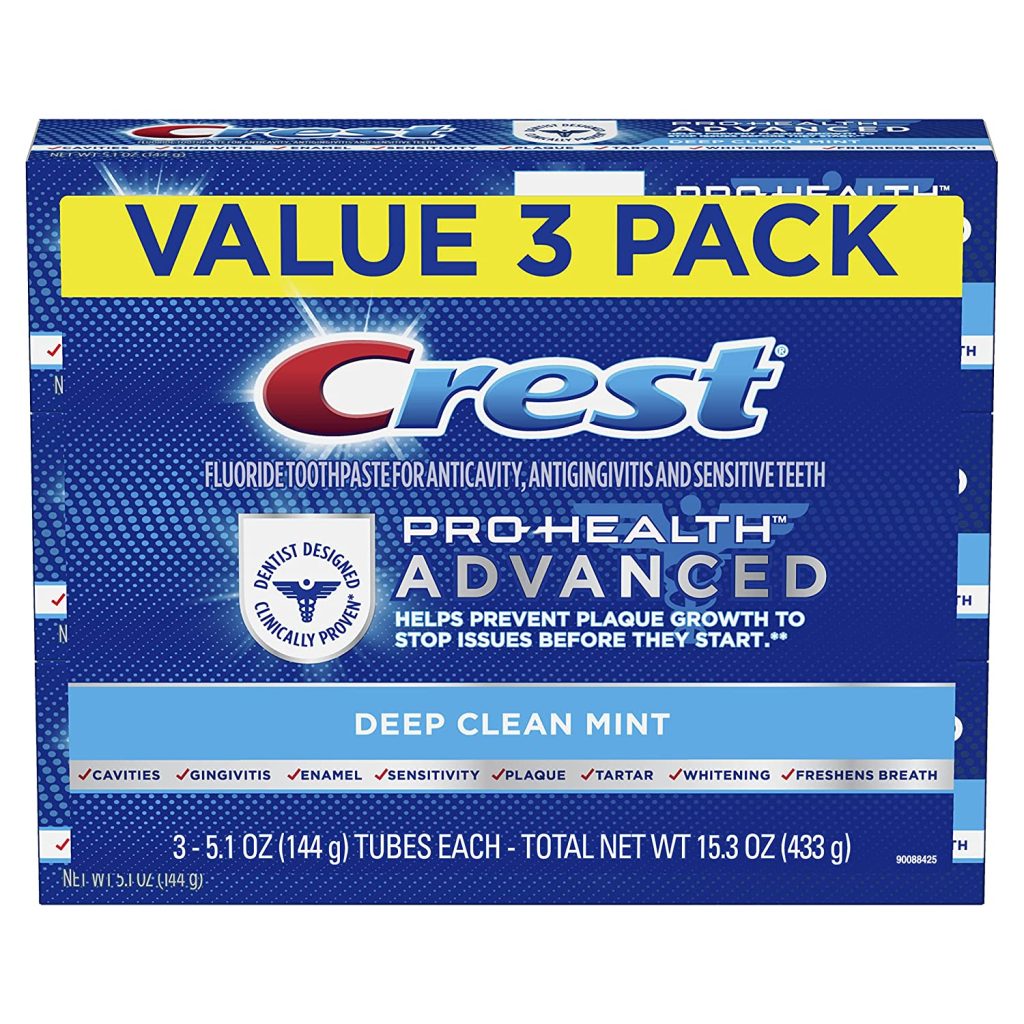
It’s worth noting that while mouthwash can temporarily mask bad breath, addressing the underlying cause is essential for long-term freshness. Regular brushing, flossing, and tongue cleaning, along with maintaining good oral hygiene practices, are crucial for preventing bad breath.
When choosing a mouthwash for bad breath, consider the following tips:
Look for an antiseptic mouthwash: Choose a mouthwash that contains antibacterial ingredients like chlorhexidine, cetylpyridinium chloride (CPC), or essential oils (such as thymol, eucalyptol, or menthol). These ingredients help kill bacteria that cause bad breath.
- Consider fluoride content: If you’re concerned about tooth decay, select a mouthwash that includes fluoride. Fluoride helps strengthen tooth enamel and prevent cavities.
- Check for alcohol-free options: Alcohol-based mouthwashes can be drying and may worsen bad breath in some individuals. Opt for an alcohol-free mouthwash, especially if you have a dry mouth or sensitive gums.
- Seek ADA Seal of Acceptance: Look for the American Dental Association (ADA) Seal of Acceptance on the mouthwash label. This seal indicates that the product has undergone rigorous testing and meets the ADA’s standards for safety and effectiveness.
- Consult your dentist: If you have persistent bad breath, it’s advisable to consult your dentist. They can evaluate the underlying cause and recommend suitable mouthwash or other treatments.
Which mouthwash is recommended dentist for mouth bad breath?
The choice of mouthwash for bad breath recommended by dentists can vary depending on individual circumstances. However, an effective mouthwash commonly suggested by dentists for addressing bad breath is one that contains ingredients like chlorhexidine or cetylpyridinium chloride (CPC). These ingredients have antibacterial properties and help to reduce the bacteria responsible for causing bad breath. Dentists may also recommend mouthwashes with fluoride to provide additional protection against tooth decay. It’s important to note that while mouthwash can temporarily mask bad breath, it is not a substitute for proper oral hygiene practices, including regular brushing, flossing, and dental check-ups. Dentists can provide personalized recommendations based on a patient’s specific needs and oral health condition.
Benefits of mouthwash for mouth bad breath –
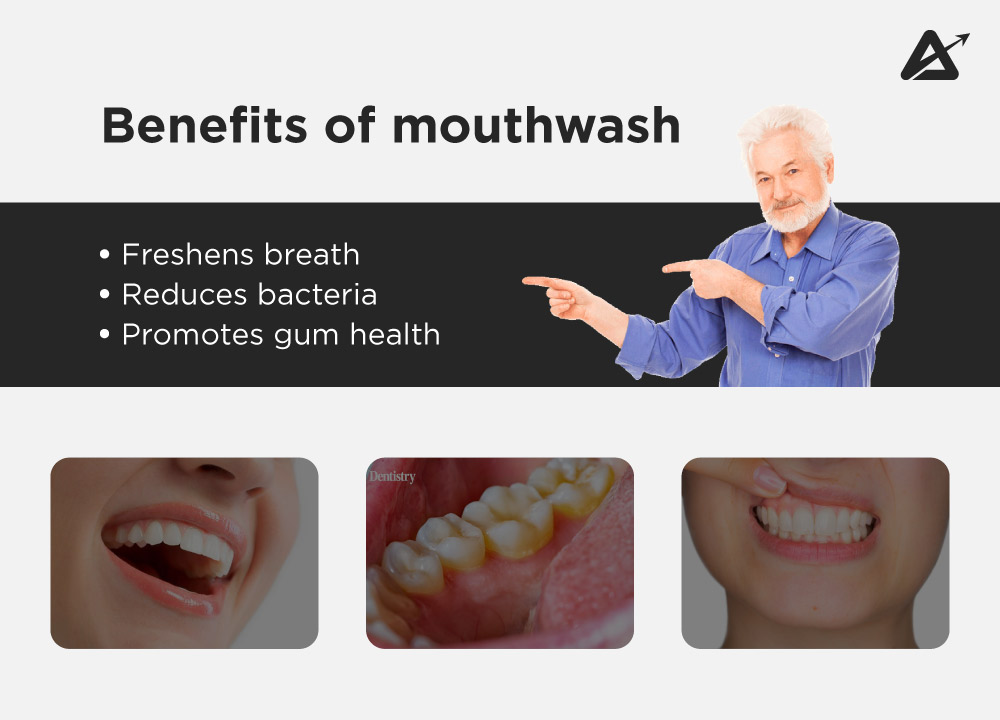
- Freshens breath: Mouthwash contains ingredients like menthol or essential oils that can temporarily mask unpleasant odors, leaving your breath feeling fresher.
- Reduces bacteria: Certain mouthwashes contain antibacterial agents, such as chlorhexidine or cetylpyridinium chloride, which can help reduce the bacteria in your mouth that contribute to bad breath.
- Cleans hard-to-reach areas: Mouthwash can reach areas in your mouth that may be difficult to clean with brushing alone, such as the back of your tongue or the spaces between your teeth, helping to remove trapped food particles and bacteria.
- Promotes gum health: Some mouthwashes contain ingredients that can help reduce gum inflammation and prevent gum disease, which can also contribute to bad breath.
- Enhances oral hygiene routine: Using mouthwash as part of your daily oral hygiene routine, along with regular brushing and flossing, can provide a comprehensive approach to maintaining good oral health and minimizing bad breath.
How does mouthwash work to eliminate bad breath?
Mouthwash works to eliminate bad breath by targeting the underlying causes. It typically contains antiseptic compounds, such as alcohol or essential oils, that kill bacteria in the mouth. These bacteria produce foul-smelling compounds, leading to bad breath. Additionally, mouthwash often contains ingredients that mask odors temporarily, providing a fresher breath sensation. Regular use of mouthwash, alongside proper oral hygiene practices like brushing and flossing, can help maintain fresh breath and improve oral health.
Should you use mouthwash before or after brushing?
It is generally recommended to use mouthwash after brushing your teeth. This allows the mouthwash to reach areas that may have been missed during brushing and helps to rinse away any remaining particles and bacteria. However, it is always best to follow the instructions provided by the specific mouthwash product you are using, as some may have different recommendations. You can use the best mouthwash for your proper treatment. Such as here is mouth bad breath is one, so you can use the best mouthwash for bad breath.
How mouthwash can affect our daily life by eliminating bad breath?
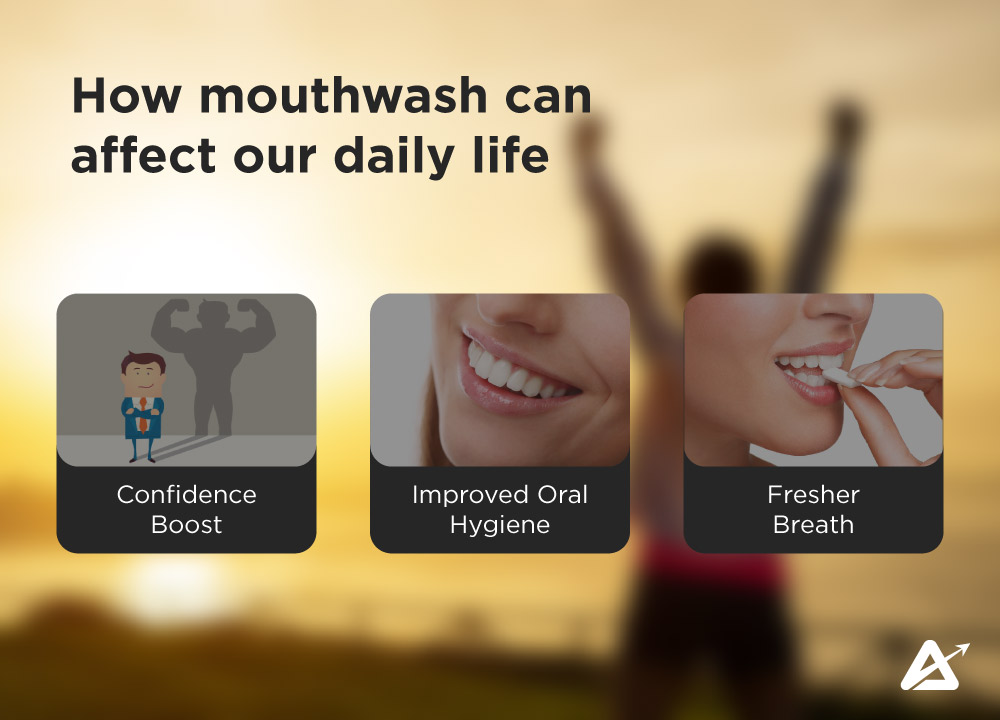
- Confidence Boost: Bad breath can be embarrassing and affect our self-confidence. By eliminating unpleasant odors, mouthwash helps us feel more comfortable in social situations, leading to increased confidence and better interactions with others.
- Improved Oral Hygiene: Mouthwash complements regular brushing and flossing by reaching areas that are difficult to clean with a toothbrush alone. It can help remove bacteria and plaque, reducing the risk of dental issues like gum disease and tooth decay.
- Fresher Breath: Mouthwash contains ingredients like antiseptics, essential oils, and menthol, which help kill bacteria and neutralize odors. Regular use can result in fresher breath, creating a pleasant experience for both ourselves and those around us.
- Enhanced Taste Perception: Persistent bad breath can interfere with our ability to taste food properly. By eliminating the source of unpleasant odors, mouthwash can enhance our taste perception and make eating a more enjoyable experience.
- Overall Oral Health: Bad breath can sometimes be an indication of underlying oral health problems. Using mouthwash as part of our daily oral hygiene routine can help maintain a healthier mouth, preventing issues such as gum inflammation, cavities, and infections.
By incorporating mouthwash into our daily routine, we can enjoy the benefits of fresher breath, improved oral hygiene, increased confidence, and a more enjoyable overall experience in our daily lives.
Conclusion
When it comes to fighting bad breath, incorporating mouthwash into your oral hygiene routine can make a significant difference. The mouthwashes mentioned above are some of the best options available, each offering unique benefits to combat bad breath effectively. Remember, while mouthwash can be a valuable addition, it should never replace brushing and flossing as the foundation of your oral care routine.
So, say goodbye to bad breath and embrace fresh, clean breath with these top-rated mouthwashes. Take the first step towards regaining your confidence and enjoying a healthier, happier smile!
It’s important to note that while mouthwash can provide temporary relief from bad breath, it is not a substitute for proper dental care. If you have chronic bad breath, it’s recommended to consult with a dentist or healthcare professional to identify and address the underlying cause.

